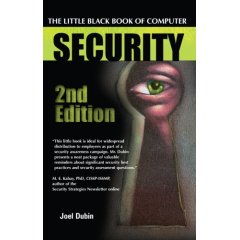Hacking for the U.S. Government: Plum Job?
Government work, which conjures up bureaucracy and red tape in the minds of most freewheeling geeks, is something most self-respecting nerds would avoid at all costs. But the combination of the recession, a weak labor market in Silicon Valley, increased government interest in cybersecurity and the growth of defense contracts in cybersecurity has swelled the ranks of bright young computer engineers looking for a classified thrill.
The players include household names in the military and defense business such Lockheed Martin, Northrop Grumman, General Dynamics and Raytheon. Some companies, like the 100-person unit at Raytheon, have built their cyberdefense businesses through acquisition.
The geeks with clearances, as they like to call themselves, use honey pots and other tools to track the hacking activity of their counterparts in places like China and Russia, and develop both defensive and offensive tools against cyberattacks.
Besides the contractors, there are an estimated 3,000 to 5,000 information operations specialists in the military itself. These initiatives are expected to help the U.S. catch up to its Chinese and Russian rivals, who have literally had free rein of American computer networks, both government and private.





